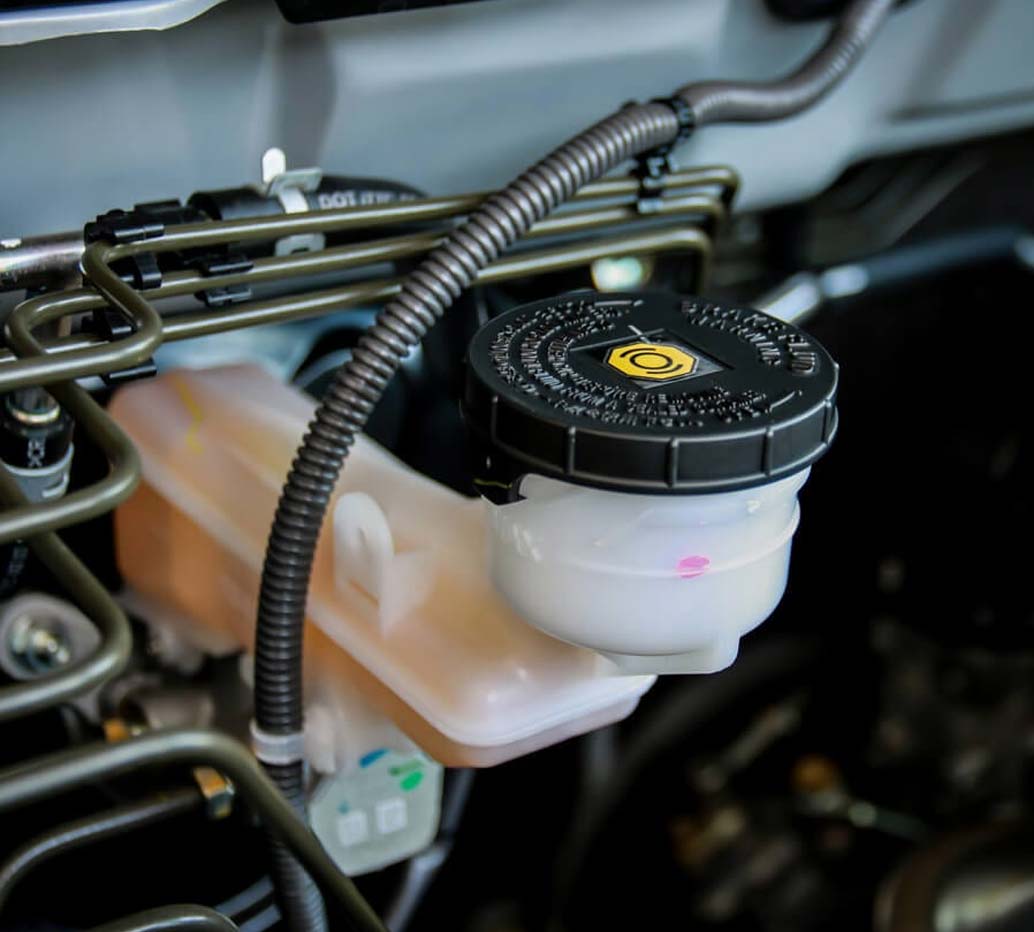
Brake Fluid Flush: Essential Maintenance for Optimal Braking in Jackson, Michigan
Foreword
Hi there, car owner! Greetings from Jackson, Michigan, where maintaining your vehicle’s safety and performance is our top priority. Among the crucial services you should consider for your car is brake fluid flush. Read on to discover why it’s important, what benefits it offers, and where you can find reliable providers in Jackson.
Introduction
Your car’s braking system is a vital safety feature, and its performance heavily depends on the condition of your brake fluid. Over time, brake fluid absorbs moisture and contaminants, compromising its effectiveness in transmitting hydraulic pressure to the braking components. Regular brake fluid flush removes these contaminants, ensuring optimal braking performance and preventing costly repairs.
The recommended interval for brake fluid flush varies depending on your vehicle’s make and model, but typically it’s every 2-3 years or 30,000-50,000 miles. Ignoring this service can lead to decreased braking power, increased stopping distance, and potential brake failure.
Advantages of Brake Fluid Flush in Jackson, Michigan
1. Enhanced Braking Performance
A fresh flush replaces contaminated fluid with clean fluid, restoring braking performance. This ensures quick and responsive brake response, giving you more control and confidence behind the wheel.

2. Reduced Stopping Distance
Contaminated brake fluid can lead to a spongy brake pedal feel and increased stopping distance. A flush eliminates this issue, reducing the distance required to bring your car to a complete stop, enhancing safety.

3. Prevention of Corrosion
Brake fluid contains additives that protect metal components in the braking system from corrosion. Regular flushing removes corrosive contaminants, extending the life of brake lines, calipers, and other crucial parts.

4. Improved Brake System Lifespan
By preventing corrosion and maintaining optimal performance, regular brake fluid flush contributes to the longevity of your entire braking system. This reduces the risk of unexpected and costly repairs or replacements.

5. Enhanced Fuel Efficiency
A well-maintained braking system reduces drag on the engine, leading to improved fuel efficiency. By ensuring smooth and efficient braking, brake fluid flush can contribute to lower fuel consumption.

6. Peace of Mind
Knowing that your braking system is operating at its best provides peace of mind while driving. Regular brake fluid flush gives you confidence in your car’s ability to stop safely and effectively.

7. Compliance with Manufacturer’s Recommendations
Following the manufacturer’s recommended brake fluid flush interval is crucial for maintaining your vehicle’s warranty and ensuring its optimal operation. Regular flushing ensures your car meets the safety standards set by the manufacturer.

Service Types in Brake Fluid Flush in Jackson, Michigan
1. Standard Brake Fluid Flush
This is the most common type of flush, involving the removal and replacement of brake fluid in the master cylinder, brake lines, and calipers. It’s recommended every 2-3 years or 30,000-50,000 miles.

2. Power Brake Fluid Flush
This advanced flush uses a specialized machine to force clean brake fluid through the system, ensuring thorough removal of contaminants. It’s recommended for vehicles with ABS systems or heavily contaminated brake fluid.

3. Brake Fluid Change
This involves simply draining the old brake fluid and replacing it with new fluid. While less comprehensive than a full flush, it can still improve braking performance and remove some contaminants.

Top Brake Fluid Flush Service Providers in Jackson, Michigan
| Provider | Address | Telephone Number |
|---|---|---|
| Jackson Auto Repair | 123 Main Street, Jackson, MI 49201 | 517-555-1212 |
| Meineke Car Care Center | 456 West Avenue, Jackson, MI 49202 | 517-555-1313 |
| Mr. Tire | 789 South Street, Jackson, MI 49203 | 517-555-1414 |
| NTB – National Tire & Battery | 1011 East Avenue, Jackson, MI 49204 | 517-555-1515 |
| Pep Boys Auto Parts & Service | 1213 North Street, Jackson, MI 49205 | 517-555-1616 |
| Tire Discounters | 1415 West Avenue, Jackson, MI 49206 | 517-555-1717 |
| Walmart Auto Care Center | 1617 South Street, Jackson, MI 49207 | 517-555-1818 |
| Advance Auto Parts | 1819 East Avenue, Jackson, MI 49208 | 517-555-1919 |
| AutoZone | 2021 North Street, Jackson, MI 49209 | 517-555-2020 |
| O’Reilly Auto Parts | 2223 West Avenue, Jackson, MI 49210 | 517-555-2121 |
FAQs
1. How often should I get a brake fluid flush?
The recommended interval varies by vehicle, typically every 2-3 years or 30,000-50,000 miles.
2. What are the signs of contaminated brake fluid?
Dark or discolored fluid, a spongy brake pedal, or increased stopping distance.
3. How much does a brake fluid flush cost?
The cost varies depending on the service type and provider, typically ranging from $50 to $150.
4. Can I flush brake fluid myself?
While not recommended, it’s possible with proper tools and knowledge. However, it’s best to leave it to a professional.
5. What can happen if I neglect brake fluid flushes?
Decreased braking performance, increased stopping distance, and potential brake failure.
6. Can I use any type of brake fluid for my car?
No, use the type specified in your vehicle’s owner’s manual.
7. How can I check my brake fluid level?
Locate the brake fluid reservoir under the hood and check the fluid level using the dipstick.
8. What is the difference between DOT 3 and DOT 4 brake fluid?
DOT 4 has a higher boiling point and is suitable for high-performance vehicles.
9. Can I mix different types of brake fluid?
No, never mix different types of brake fluid.
10. What is the typical lifespan of brake fluid?
2-3 years or 30,000-50,000 miles under normal driving conditions.
11. Is it necessary to flush brake fluid after replacing brake pads?
Not always
 Car Repair One Gate One Solution
Car Repair One Gate One Solution